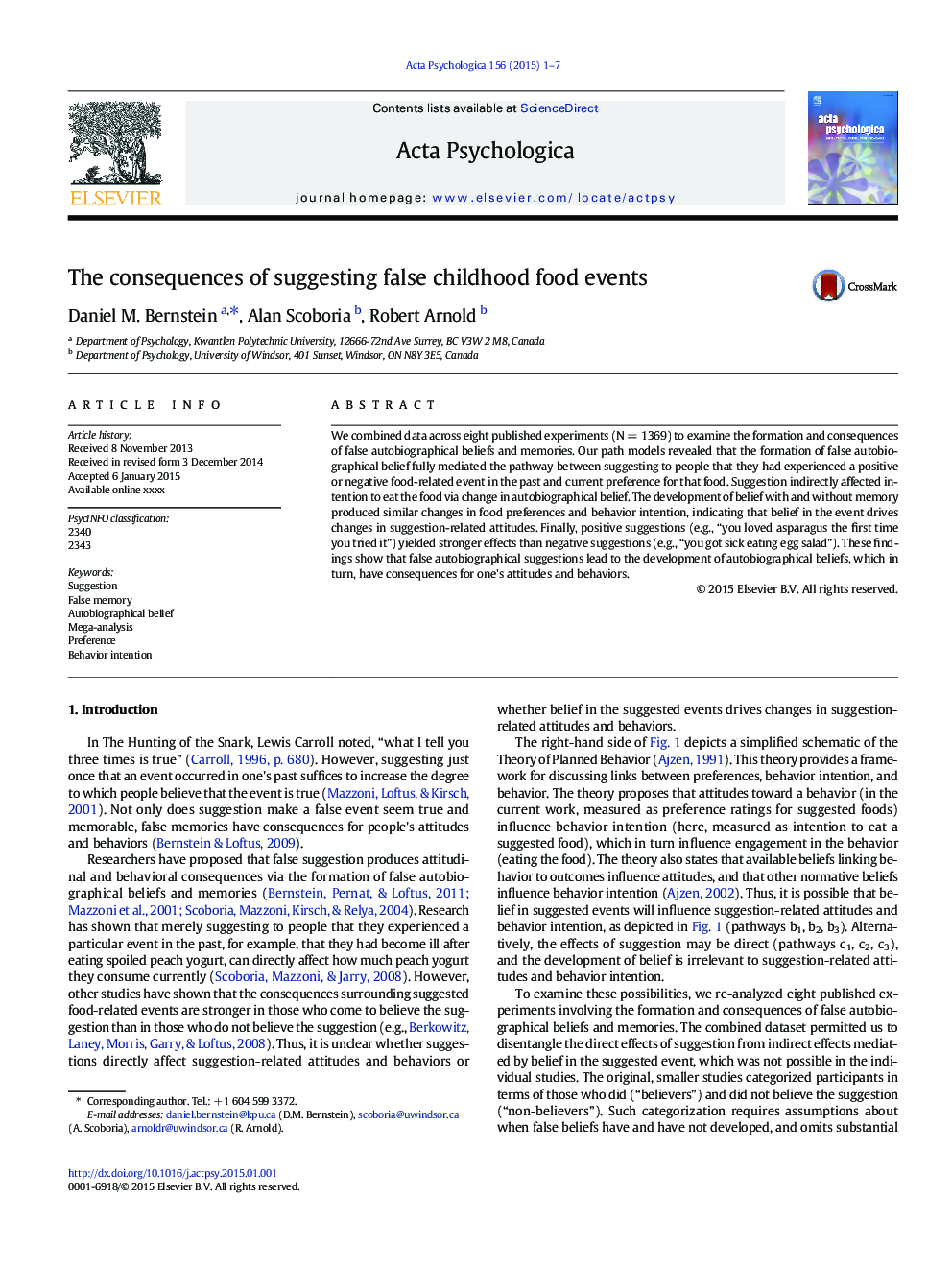| Article ID | Journal | Published Year | Pages | File Type |
|---|---|---|---|---|
| 7277420 | Acta Psychologica | 2015 | 7 Pages |
Abstract
We combined data across eight published experiments (NÂ =Â 1369) to examine the formation and consequences of false autobiographical beliefs and memories. Our path models revealed that the formation of false autobiographical belief fully mediated the pathway between suggesting to people that they had experienced a positive or negative food-related event in the past and current preference for that food. Suggestion indirectly affected intention to eat the food via change in autobiographical belief. The development of belief with and without memory produced similar changes in food preferences and behavior intention, indicating that belief in the event drives changes in suggestion-related attitudes. Finally, positive suggestions (e.g., “you loved asparagus the first time you tried it”) yielded stronger effects than negative suggestions (e.g., “you got sick eating egg salad”). These findings show that false autobiographical suggestions lead to the development of autobiographical beliefs, which in turn, have consequences for one's attitudes and behaviors.
Related Topics
Life Sciences
Neuroscience
Cognitive Neuroscience
Authors
Daniel M. Bernstein, Alan Scoboria, Robert Arnold,
